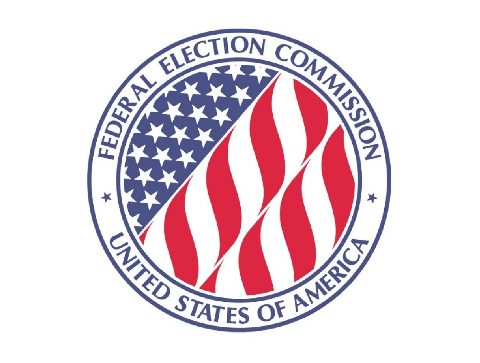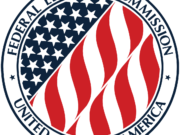On September 30, 2024, the Institute for Free Speech wrote comments to the Federal Election Commission expressing support for the Commission to commence a rulemaking to lessen the burden on state and local political parties.
Read a PDF of the comments here.
September 30, 2024
Ms. Amy L. Rothstein
Assistant General Counsel for Policy
Federal Election Commission
1050 First Street NE,
Washington, DC 20463
RE: Comment on REG 2024-07, Political Party Rules II
Dear Ms. Rothstein;
On behalf of the Institute for Free Speech,[1] we write to express our support for the Commission commencing a rulemaking to lessen the burden on state and local political parties.
The impact of the Commission’s political party rules, reflected in the Shay’s III rulemaking, has been the effective federalization of state and local political parties. This raises serious federalism concerns. After all, states—not the federal government—should determine how money is raised or spent to elect state officials. While many of these burdens stem from statutory language, particularly requirements adopted as part of the Bipartisan Campaign Reform Act, there are still opportunities to make a difference through regulatory reform.
Over ten years ago, the Commission held a public hearing on the challenges faced by political parties seeking to engage in federal elections.[2] The Institute for Free Speech—then known as the Center for Competitive Politics—highlighted some of these and other opportunities to adjust the Commission’s regulatory approach in response to Petitioner’s 2016 petition for rulemaking.[3] We attach and incorporate these comments by reference to this document.
Unfortunately, as the Petition for Rulemaking highlights, little regulatory progress has been made over the past decade to alleviate the burdens on state and local parties.
Subsequent judicial opinions underscore the need for review today. Since the adoption of the Commission’s current rules, the Court has repeatedly emphasized that it “has recognized only one permissible ground for restricting political speech: the prevention of ‘quid pro quo’ corruption or its appearance.”[4] It also has emphasized that there must be solid evidence of problems to justify a regulation: “We have ‘never accepted mere conjecture as adequate to carry a First Amendment burden.’”[5]
Moreover, the Court has clarified how courts will approach agency interpretations of statutes. Loper Bright Enterprises v. Raimondo ruled that “Chevron is overruled. Courts must exercise their independent judgment in deciding whether an agency has acted within its statutory authority, as the APA requires…. And when a particular statute delegates authority to an agency consistent with constitutional limits, courts must respect the delegation, while ensuring that the agency acts within it. But courts need not and under the APA may not defer to an agency interpretation of the law simply because a statute is ambiguous.”[6]
The Petition provides an opportunity for the Commission to revisit both practical and legal concerns about its current regulatory approach, including whether the Commission’s current approach is properly tailored to the statute or whether it sweeps up too much core First Amendment activity.
For example, the Commission should reexamine the presumption that state and local/district committees are “affiliated” for purposes of federal contribution limits. This presumption has the necessary effect of filtering contributions up to the state party and away from more locally focused organizations. Moreover, it neglects that in many states, local and district parties act with a significant degree of autonomy and often select their own leaders in localized elections.
The Commission should also reexamine the allocation of expenses for staff salaries, wages, and benefits. As the Petition for Rulemaking observes, the inclusion of “federal election activity” goes beyond what is required in the statute and federalizes the vast majority of state party employees, particularly in states that do not have off-year state or local elections.
Other areas for particular attention include revisiting the Commission’s definition of exempt volunteer activities, particularly considering the changing nature of campaigning, and reexamining the Commission’s definition of federal election activity, which, as currently written, sweeps up far too much basic party activity that is at best tangentially connected to federal elections.
The Commission has heard concerns with its approach to political parties for over a decade. Supreme Court rulings since the adoption of the party regulations heighten these concerns by raising serious constitutional doubts about many of the regulations. Thus, the matter is ripe for consideration and action. Therefore, we strongly encourage the Commission to initiate a rulemaking addressing regulations on political parties as soon as possible.
Thank you very much for your time and consideration of our views.
Respectfully submitted,
Bradley A. Smith Gary M. Lawkowski
Chairman Senior Fellow
[1] The Institute for Free Speech is a nonpartisan, nonprofit 501(c)(3) organization that promotes and defends the First Amendment rights to freely speak, assemble, publish, and petition the government.
[2] FEC Chairman Goodman and Vice Chair Ravel Host Political Party Forum, Federal Election Commission (June 4, 2024), https://www.fec.gov/updates/fec-chairman-goodman-and-vice-chair-ravel-host-political-party-forum/.
[3] See Comment of Center for Competitive Politics on Notice 2016-11: Rulemaking Petition: Political Party Rules (Jan. 30, 2017), https://sers.fec.gov/fosers/showpdf.htm?docid=355039.
[4] FEC v. Cruz, 596 U.S. 289, 305 (2022).
[5] Cruz, 596 U.S. at 307 (quoting McCutcheon v. FEC, 572 U.S. 184, 210 (2014)).
[6] 144 S.Ct. 2244, 2273 (2024)














